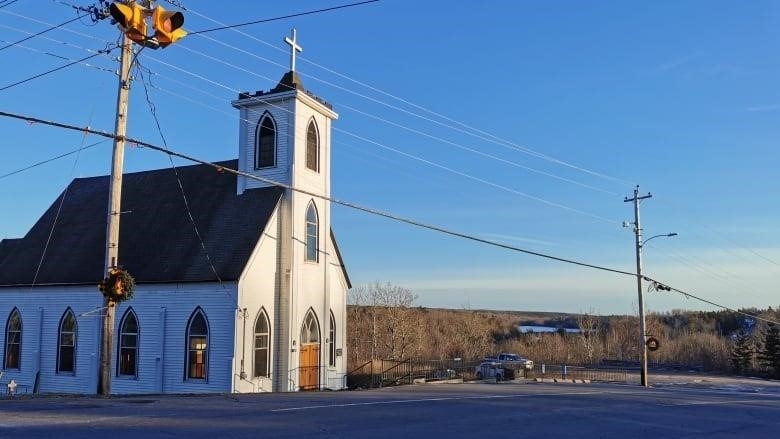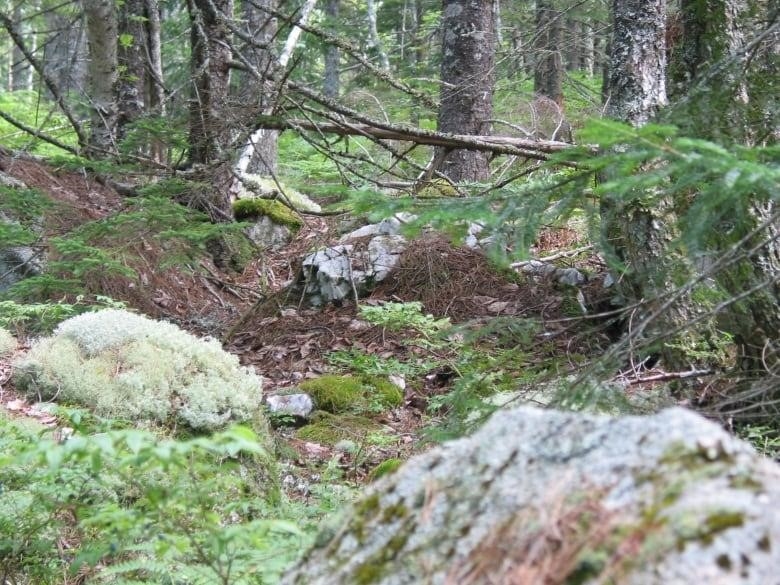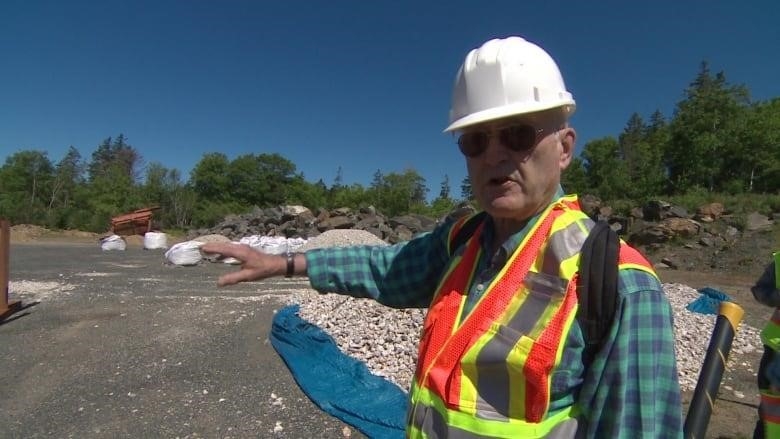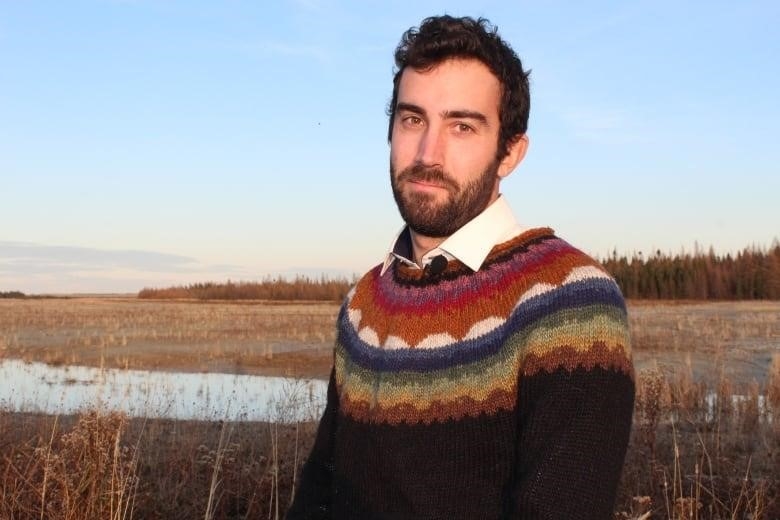
At least half of the 27,000 claims made in 2022 were for the battery metal
Ruth Veinotte has lived in New Ross, Nova Scotia, for as long as she can remember, and she has seen many different gold prospectors come and go.
The woman who has lived in Lunenburg County for 67 years says that what people look for has changed over time. Manganese was mined in the area until the 1930s. After that, tin, uranium, and other minerals were looked for there.
Veinotte looks at the rural area that has gotten so much attention as she fills up her pickup truck on the quiet main road of the community.
She says it didn’t surprise her that in 2022, a company bought land claims for nearly 114,000 hectares in and around New Ross. “They’re looking for lithium!” was the word spread by a loose network of neighbors.
This company, Brunswick Exploration of Montreal, is one of the businesses and people who have led to a big rise in the sale of mineral claims in Nova Scotia in 2022.
Buying a claim is one of the first steps in making a mine. They are permissions from the government that give companies the exclusive right to explore a piece of land, no matter who owns it, after getting permission.
According to data from the Nova Scotia government that is available to the public, the province sold 27,000 claims last year. This is a big jump from the five years before. Each claim covers a certain geographical area, and each exploration license can have up to 80 of them.
At least half of these 27,000 claims are held by companies that want to find lithium.
Two companies bought almost 7,000 claims each, making them the largest buyers.
Brunswick Exploration is working on several exploration projects at the same time in Nova Scotia, Saskatchewan, Manitoba, Ontario, Quebec, and New Brunswick. Australia’s Continental Lithium also bought licenses, but its exploration is being done by another Australian company, Manhattan Corporation Ltd.

Canada has a list of 31 “critical” minerals, and lithium is one of them. This is because lithium is a key ingredient in carbon-free technologies, like the batteries for electric cars.
The World Economic Forum says that by 2021, Australia, Chile, and China will make up 90% of the world’s lithium production.
John MacNeil, registrar of mineral and petroleum titles for the Nova Scotia Department of Natural and Renewable Resources, says that exploration for these minerals is increasing across North America because demand is growing.
“These minerals are found in certain parts of the country. This has been known for a long time,” says MacNeil. Even the province isn’t different.
“There is a lot of potential because Nova Scotia has a lot of different kinds of rocks.”
“This is a very exciting time for the whole business world.
Paul Smith, who is the general manager of the Manhattan Corporation, agrees.
Smith just started working for this company. He is a retired geologist who used to look for gold in Nova Scotia.
Manhattan said in February that it wanted to buy the Chebogue Lithium Project. The project will involve working on 1,200 square kilometers of land that starts in the Annapolis Valley and goes all the way down to the South Shore.
“You probably know about the gold rush. But this is really a lithium rush, ” he says.
Smith also bought more licenses for that project, so he was the first company to do so.
“If I had staked the ground a week later, I would have had a different story to tell. If we hadn’t gone there, says Smith.
This summer, prospecting will start up again. But there won’t be a mine there soon.
Smith says that once exploration work shows that a property has potential, it would likely take a decade to move to the mining stage because there are so many rules to follow.
At the moment, he is hopeful.
“I think it was a great idea to set up camp in the southern part of Nova Scotia. We are the ones who are most likely to find something new in Nova Scotia,” “Smith tells us.

Brunswick Exploration turned down our request to talk to us. In an email to CBC, a manager said, “Nova Scotia will not be a big part of our work in 2023.”
Late in 2022, Brunswick’s website said that crews had found a number of good prospects in central Nova Scotia. The company said that it plans to look for more oil and gas in the first half of 2023.
First mine in 3 years
There’s a chance that another project that’s further along in the process will be ready sooner.
Since 1997, Champlain Mineral Ventures has had permission to look for minerals at Brazil Lake, which is about 20 kilometers northeast of Yarmouth.
Lithium is known to be there, which is why a Chinese company became interested in it in 2016. That deal didn’t work out, but people soon became interested again. In April 2022, Champlain got a lot of calls and emails after it gave an update on the Brazil Lake Project’s potential.

John Wightman, president and CEO of Champlain, says that other companies from Europe, Asia, Australia, Canada, and the U.S. have been calling him to make a deal to buy this property.
An Australian company has finally signed a contract to continue exploring the property. Wightman says that he hopes that deposits will start to be used in three years.
MiningWatch Canada wants more information to be made public
It’s not clear how the increase in mining claims could affect the people who live nearby.
Several environmental groups and city council members said they didn’t want to be interviewed because they didn’t know enough about what was going on in the area.
Lawyer and MiningWatch Canada national program co-lead Rodrigue Turgeon says this is a cause for concern.

“Markets are pushing exploration companies to buy a lot of claims quickly, but this is done in complete silence and darkness. When people find out about it, they have to deal with people who are there for their own reasons, whatever he says.
Turgeon, who works for MiningWatch Canada and is in charge of Quebec and the Maritimes, wants Nova Scotia to change its laws so that local people can be consulted and given a say before claims are sold.
“People want to be asked what they think and be part of the solution. When the mining industry is given priority, it’s like telling people, “Forget all the plans you had for the future of your favorite place. We show up with a project that involves multinationals, but the locals aren’t included in the planning, as he says.
Veinotte hopes that people who own land know their rights.
“In places like this, a lot of the people are older and may not have a high level of education or much contact with the outside world.” “I’ve tried to learn what I have to let in and what I don’t, but I think most people don’t know.”
MORE TOP STORIES
